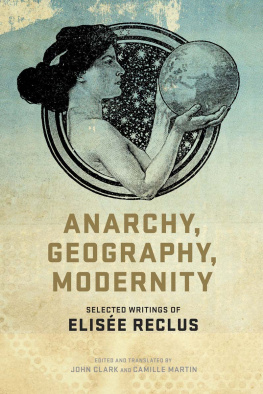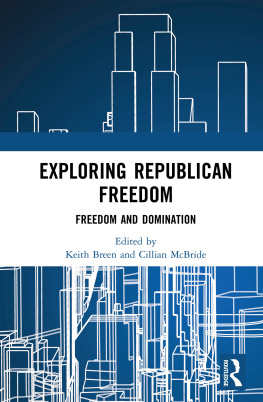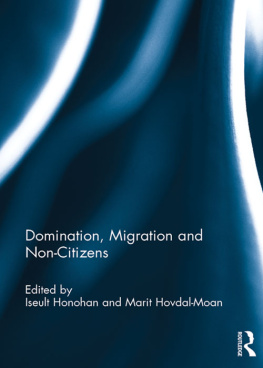
Anarchy, Geography, Modernity: Selected Writings of Elise Reclus Edited and translated by
John Clark and Camille Martin, with an introductory essay by John Clark
2013 John Clark and Camille Martin
This edition 2013 PM Press
All rights reserved. No part of this book may be transmitted by any means without permission in writing from the publisher.
ISBN: 978-1-60486-429-8
Library of Congress Control Number: 2013911520
Cover: John Yates / www.stealworks.com
Interior design by briandesign
10 9 8 7 6 5 4 3 2 1
PM Press
PO Box 23912
Oakland, CA 94623
www.pmpress.org
Printed in the USA by the Employee Owners of Thomson-Shore in Dexter, Michigan.
www.thomsonshore.com
For all who are able to envision
a free, just, and compassionate world,
and who, like Reclus,
dedicate their lives
to creating such a world
Contents

Preface to the PM Press Edition
One of the best-known images from Reclus works originally appeared above the preface of his magnum opus, LHomme et la Terre, and is reproduced here. It depicts two hands holding the earth, coupled with the statement in French that Humanity is nature becoming self-conscious. It is clear that the image indicates not only that the fate of the earth is now in the hands of humanity, but also that humanity can only fulfill its weighty responsibility by acting with an awareness that we are an integral part of nature, rather than continuing under the illusion that we are a power over and above the natural world. Reclus message is that the hands in the image are those of nature acting through humanity, though it is up to the viewer whether to read the image with more emphasis on humanity or more on nature.
Another famous Reclusian image, the one reproduced on the cover of this book, contains no such ambiguity. In this image, we see Nature herself contemplating or watching over the earth, which this time is clearly held in her hands. The question posed by this Reclusian image is very much in this spirit: whether we can fulfill our historical destiny as an integral part of nature, awakened to the earth, allowing it to reveal itself to us, and playing our role in holding and caring for it.
It has been almost a decade since the first edition of this work appeared. Since then, the crucial significance of Reclus vision of humanity Knowledge of such threats has expanded greatly over the past decade. This is exemplified by the successive United Nations Climate Change Conferences that focus the worlds attention on global climate crisis, while the negotiations fail ever more miserably.
Global social crisis has followed a similarly tragic trajectory. The consumptionist culture of nihilism and the productionist system of technological domination have continued to colonize all areas of global society, while the nationalist, ethnic identitarian, and religious fundamentalist reactions to these processes continue to accelerate. Integral to these developments (both those internal to the dominant system and those generated in reaction to it) is the continual expansion by capitalism and the state of mechanisms of surveillance, control and annihilation. In view of the inability of the dominant system to significantly reform, much less radically transform itself in the face of global social and ecological crisis, Reclus call for a many-sided social ecological revolution to replace the system of domination with engaged and compassionate communities in solidarity with humanity and nature seems increasingly prophetic.
The year after this book originally appeared, 2005, marked the 100th anniversary of the death of Elise Reclus and the 175th anniversary of his birth. It also signaled the beginning of a surge of interest in his thought. A number of international conferences brought together researchers and activists to discuss Reclus work and its relevance today. These included conferences on The Geographer, the City and the World at the University of Montpellier, France (dedicated to Reclus and French geographer Paul Vidal de la Blache); Elise Reclus and Our Geographies: Texts and Pretexts at the University of Lyon, France; Elise Reclus, Nature and Education at the University of Milan-Bicocca, Italy; and Humanity and the Earth / LHomme et la Terre: The Legacy of Elise Reclus at Loyola University in New Orleans. Such international events have continued to take place as interest in Reclus expands. The most important of these, Elise Reclus and the Geography of the New World, took place in 2011 at the University of So Paulo, Brazil, which has become a global center of Reclus research.
In recent years, the rate of publication of works on or by Reclus has grown exponentially. In the wake of the centennial, two new books on Reclus and two collections of Reclus conference proceedings appeared. In view of the rapidly growing interest in Reclus, this is an auspicious time for the new edition of the present work to appear.
We would like to reiterate our gratitude to the many who contributed to the project, and who were mentioned in the preface to the first edition. Prof. Ronald Creagh deserves further thanks for his contributions to this revised edition. In addition, we would like to thank Ramsey Kanaan and Craig OHara of PM Press for their encouragement and assistance, and John Yates for his skill and imagination in designing the cover of this edition. We are extremely grateful to PM Press for making it possible for this work to become readily available to its intended audience for the first time. With its publication of the first accessible edition of this work and the first comprehensive collection of writings of Gustav Landauer in English, PM Press has been instrumental in bringing to an English-speaking audience the work of the two greatest classical communitarian anarchist philosophers. Paraphrasing Hegels famous statement about philosophy, the Owl of Minerva takes flight at dusk, we might say that for anarchist philosophy today the Owl of Minerva increasingly takes flight at PM.
Preface to the First Edition
Elise Reclus life and ideas have been an inspiration to both of us ever since we first discovered his fascinating account of his voyage to New Orleans. We both have a strong interest in French culture and ideas and in the history of the French in Americaan interest that was influenced by our Louisiana French family backgrounds. One of us has long been interested in anarchist theory and social ecology, and has written several books on these subjects. For these reasons, we were intrigued by this French anarchist geographer and his acute observations on the land of our ancestors, la Louisiane. We went on to translate the text of Reclus voyage, which was published as A Voyage to New Orleans: Anarchist Impressions of the Old South.
As we continued to study Reclus over most of the past decade, we found his writings not only interesting historically but also pertinent to todays world. We have both been active in the Green movement and in various ecological projects, and for a number of years we edited a magazine concerned with (among other things) bioregional culture and ecological politics. We were struck by the degree to which Reclus ideas concerning the relationship between humanity and the earth, his view of history and the struggle for liberation, and his critique of various forms of oppression and domination were relevant to the theory and practice of political ecology. Reclus efforts to put his inspiring ideals into practice in his personal life also impressed us greatly. We concluded that despite serious limitations in some areas, he has an important message of freedom, human love and solidarity, and reconciliation with nature that is as meaningful today as ever before. In fact, it takes on even more significance in an increasingly cynical age that is sorely in need of a vision of hope, social creativity, and the universal good. This book is the result of our desire to share Reclus vision with others.
Next page










